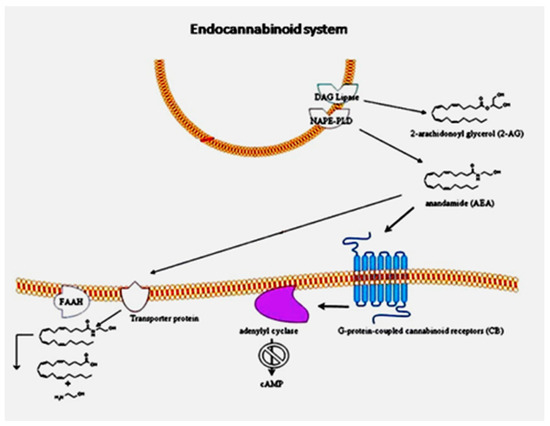
“Recent years have seen an impressive amount of research devoted to understanding the etiopathology of Autism Spectrum Disorder (ASD) and developing therapies for this syndrome. Because of the lack of biomarkers of ASD, this work has been largely based on the behavioral characterization of rodent models, based on a multitude of genetic and environmental manipulations.
Here we highlight how the endocannabinoid system (ECS) has recently emerged within this context of mouse behavioral studies as an etiopathological factor in ASD and a valid potential therapeutic target.
We summarize the most recent results showing alterations of the ECS in rodent models of ASD, and demonstrating ASD-like behaviors in mice with altered ECS, induced either by genetic or pharmacological manipulations. We also give a critical overview of the most relevant advances in designing treatments and novel mouse models for ASD targeting the ECS, highlighting the relevance of thorough and innovative behavioral approaches to investigate the mechanisms acting underneath the complex features of ASD.”
https://pubmed.ncbi.nlm.nih.gov/34813825/
“Autism Spectrum Disorder (ASD) is a complex pathology with unknown aetiology and developing therapeutic approaches.•
Recent mouse behavioural studies have highlighted the role of the endocannabinoid system (ECS) in ASD.•
Novel pharmacological treatments and new genetic mouse models for ASD can be identified and designed by targeting the ECS.”
https://www.sciencedirect.com/science/article/abs/pii/S014976342100525X?via%3Dihub



 “The Endocannabinoid System (ECS) is primarily responsible for maintaining homeostasis, a balance in internal environment (temperature, mood, and immune system) and energy input and output in living, biological systems.
“The Endocannabinoid System (ECS) is primarily responsible for maintaining homeostasis, a balance in internal environment (temperature, mood, and immune system) and energy input and output in living, biological systems.  “Autism spectrum disorder (ASD) is a complex neurodevelopmental disorder with a multifactorial etiology. Latest researches are raising the hypothesis of a link between the onset of the main behavioral symptoms of ASD and the chronic neuroinflammatory condition of the autistic brain; increasing evidence of this connection is shedding light on new possible players in the pathogenesis of ASD.
“Autism spectrum disorder (ASD) is a complex neurodevelopmental disorder with a multifactorial etiology. Latest researches are raising the hypothesis of a link between the onset of the main behavioral symptoms of ASD and the chronic neuroinflammatory condition of the autistic brain; increasing evidence of this connection is shedding light on new possible players in the pathogenesis of ASD. “The pharmacological treatment for autism spectrum disorders is often poorly tolerated and has traditionally targeted associated conditions, with limited benefit for the core social deficits.
“The pharmacological treatment for autism spectrum disorders is often poorly tolerated and has traditionally targeted associated conditions, with limited benefit for the core social deficits. “Autism spectrum disorder (ASD) is a multifactorial, pervasive neurodevelopmental disorder defined by the core symptoms of significant impairment in social interaction and communication as well as restricted, repetitive patterns of behavior. In addition to these core behaviors, persons with ASD frequently have associated noncore behavioral disturbance (ie, self-injury, aggression), as well as several medical comorbidities. Currently, no effective treatment exists for the core symptoms of ASD.
“Autism spectrum disorder (ASD) is a multifactorial, pervasive neurodevelopmental disorder defined by the core symptoms of significant impairment in social interaction and communication as well as restricted, repetitive patterns of behavior. In addition to these core behaviors, persons with ASD frequently have associated noncore behavioral disturbance (ie, self-injury, aggression), as well as several medical comorbidities. Currently, no effective treatment exists for the core symptoms of ASD.